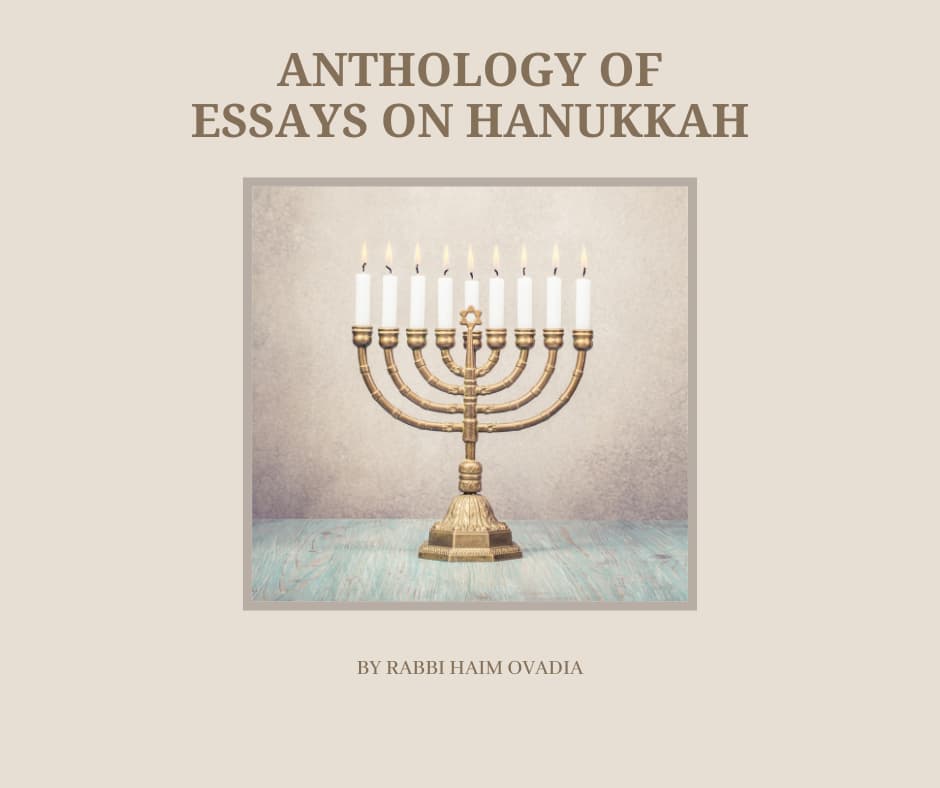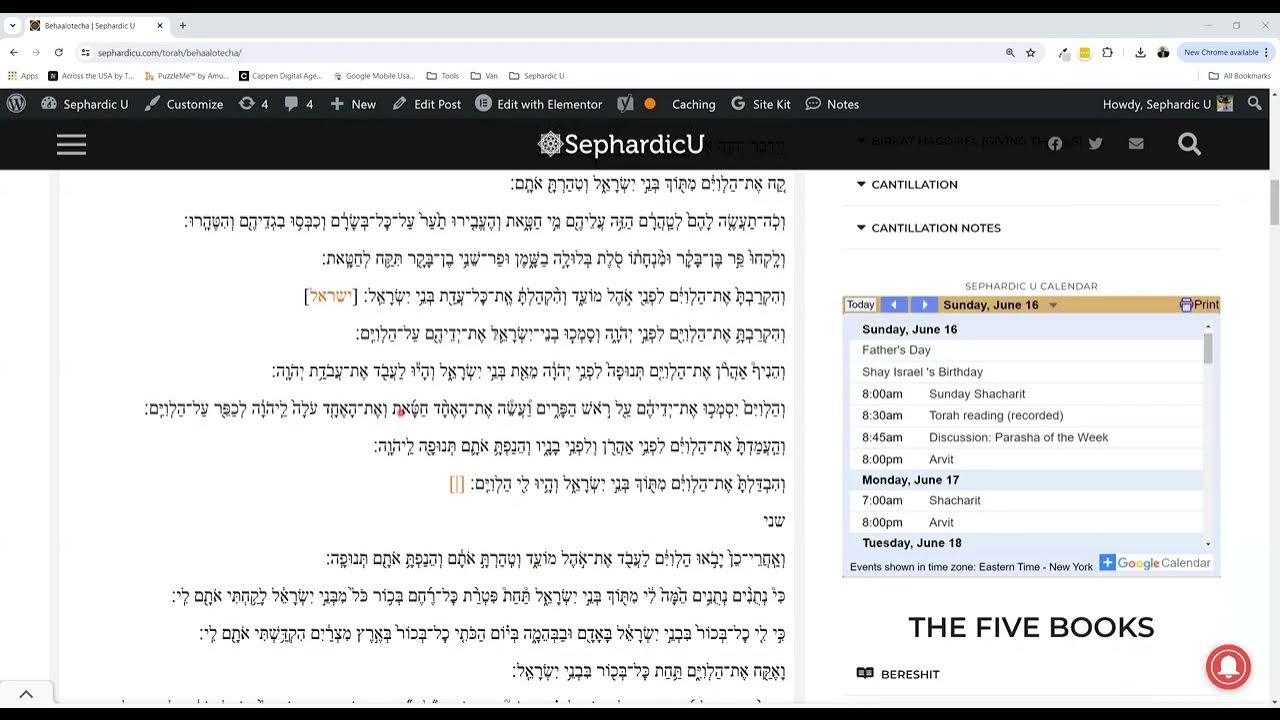| Aspect | Description |
|---|---|
| Parasha Number | The 36th Parasha in the Torah and the 3rd in the Book of Numbers (Bemidbar). |
| Parasha Name | Behaalotecha (בְּהַעֲלֹתְךָ), meaning “When you set up” in Hebrew, referring to the instruction to Aaron regarding the lighting of the menorah. |
| Torah Book | Numbers (Bemidbar). |
| Number of Verses | Comprises 136 verses. |
| Number of Words | Approximately 1,954 words in the Hebrew text. |
| Primary Characters | Key figures include Moses, Aaron, Miriam, and the Israelites. |
| Key Themes | Focuses on the lighting of the menorah, the consecration of the Levites, the observance of the second Passover, and the guidance of the Israelites by the cloud of God, emphasizing leadership, divine guidance, and ritual observance. |
| Significant Events | Includes the lighting of the menorah, the consecration and purification of the Levites, the observance of the second Passover (Pesach Sheni), the departure from Mount Sinai, and the complaints of the Israelites about their hardships. |
| Notable Quotes | “And when the Ark traveled, Moses would say: ‘Rise up, O Lord! May Your enemies be scattered and may those who hate You flee from Your presence.'” (Numbers 10:35) |
| Legacy | Parashat Behaalotecha highlights the importance of divine guidance, leadership, and adherence to God’s commandments, reinforcing themes of faith and obedience. |
| Relevance Today | The themes of divine guidance, leadership, and adherence to ritual commandments continue to resonate in contemporary Jewish practice, offering lessons on faith and community. |
| Well-Known Stories | Includes the lighting of the menorah, the institution of Pesach Sheni, and the Israelites’ complaints about the manna, which are significant in Jewish tradition and practice. |
| Special Observances | Read in synagogues, often highlighting themes of guidance and leadership as the community reflects on the journey and challenges of the Israelites. |
| Connections to Texts | Behaalotecha builds upon the organizational and ritual themes in Bemidbar and introduces additional laws and narratives, reinforcing the structure and sanctity of the Israelite community. |
| Theological Significance | Emphasizes the importance of divine guidance, the role of leadership, and the need for communal adherence to God’s commandments, reinforcing the spiritual commitment and unity of the Israelite nation. |
Throughout Parashat Behaalotecha, God commands Moses to instruct Aaron on setting up and lighting the menorah, emphasizing the importance of maintaining a source of divine light within the sanctuary. This portion also addresses the consecration and purification of the Levites, underscoring their special role and responsibilities within the Israelite community.
A notable highlight of Parashat Behaalotecha is the institution of Pesach Sheni, the second Passover, providing an opportunity for those who were unable to participate in the first Passover to fulfill this essential commandment. This reflects the Torah’s concern for inclusivity and the importance of second chances in maintaining ritual observance.
Additionally, the portion details the Israelites’ departure from Mount Sinai and their subsequent journey, guided by the divine cloud, which signaled when to set up camp and when to move. This symbolizes the constant presence and guidance of God in their lives, a key theme in this parasha.
Parashat Behaalotecha underscores the significance of divine guidance, leadership, and adherence to God’s commandments. It highlights the importance of maintaining ritual observance and the profound impact of divine presence and guidance on the people’s journey and well-being.
Moreover, Parashat Behaalotecha emphasizes the need for spiritual readiness and responsiveness to divine signals as the Israelites continue their journey. It serves as a powerful reminder of the importance of following divine guidance and the role of leaders in ensuring the community’s adherence to God’s commandments.
In addition to its focus on the menorah, the Levites, and Pesach Sheni, Parashat Behaalotecha reinforces the themes of unity and spiritual purpose within the Israelite nation. It calls upon the community to recognize and fulfill their individual and collective roles, ensuring the smooth functioning of the camp and their journey towards the Promised Land.
Overall, Parashat Behaalotecha serves as a profound guide for spiritual dedication and communal harmony, highlighting the critical role of divine guidance, leadership, and ritual observance in securing communal well-being and divine favor. It continues to inspire Jewish communities today in their pursuit of a life characterized by spiritual commitment, adherence to divine commandments, and responsiveness to divine guidance.
בהעלותך
במדבר ח׳:א׳-י״ב:ט״ז
Behaalotecha
Numbers 8:1-12:16
Advance, O יהוה !
May Your enemies be scattered,
And may Your foes flee before You!
Return, O יהוה,
You who are Israel’s myriads of thousands!
זכריה
ב׳:י״ד-י״ז
Zechariah
2:14-4:7
For [God] is roused from the holy habitation.
“This is the word of GOD to Zerubbabel: Not by might, nor by power, but by My spirit—said GOD of Hosts.
Behaalotecha
more on Parashat Parashat Behaalotecha: Lighting the Lamps
Quick Guide: The Five Books of Moses
| Genesis | Exodus | Leviticus | Numbers | Deuteronomy |
|---|---|---|---|---|
| Bereshit (1:1-6:8) |
Shemot (1:1-6:1) |
Vayikra (1:1-5:26) |
Bemidbar (1:1-4:20) |
Devarim (1:1-3:22) |
| Noach (6:9-11:32) |
Va'era (6:2-9:35) |
Tzav (6:1-8:36) |
Naso (4:21-7:89) |
Va'etchanan (3:23-7:11) |
| Lech Lecha (12:1-17:27) |
Bo (10:1-13:16) |
Shemini (9:1-11:47) |
Behaalotecha (8:1-12:16) |
Ekev (7:12-11:25) |
| Vayera (18:1-22:24) |
Beshalach (13:17-17:16) |
Tazria (12:1-13:59) |
Shelach (13:1-15:41) |
Re'eh (11:26-16:17) |
| Chaye Sarah (23:1-25:18) |
Yitro (18:1-20:23) |
Metzora (14:1-15:33) |
Korach (16:1-18:32) |
Shoftim (16:18-21:9) |
| Toledot (25:19-28:9) |
Mishpatim (21:1-24:18) |
Achare Mot (16:1-18:30) |
Chukat (19:1-22:1) |
Ki Tetze (21:10-25:19) |
| Vayetze (28:10-32:3) |
Terumah (25:1-27:19) |
Kedoshim (19:1-20:27) |
Balak (22:2-25:9) |
Ki Tavo (26:1-29:8) |
| Vayishlach (32:4-36:43) |
Tetzaveh (27:20-30:10) |
Emor (21:1-24:23) |
Pinchas (25:10-30:1) |
Nitzavim (29:9-30:20) |
| Vayeshev (37:1-40:23) |
Ki Tisa (30:11-34:35) |
Behar (25:1-26:2) |
Matot (30:2-32:42) |
Vayelech (31:1-30) |
| Miketz (41:1-44:17) | Vayakhel (35:1-38:20) |
Bechukotai (26:3-27:34) |
Masei (33:1-36:13) |
Haazinu (32:1-52) |
| Vayigash (44:18-47:27) |
Pekude (38:21-40:38) |
V'Zot HaBeracha (33:1-34:12) |
||
| Vayechi (47:28-50:26) |










